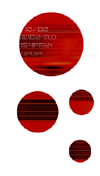

 |
 |
scientific program electroacoustic musics around set theory music analysis tools musicnetwork workshop professional week ircam forum workshops free software for music international multichannel sound forum performing arts and technologies dance and new technologies access to sound heritage thematic evenings demonstration stands artistic program set theory concert music in creation concert cursus concerts opera "one" sound installations open house weekend technologies gallery conferences demonstrations workshop-performances workshops and films ircam laboratories linux install-party concert distribution on internet associated events resonances night at glaz'art émilie simon at la cigale suguru goto reseaunances guided tours of ircam and the multimedia library resonances in pictures resonances 2002 
|
MARTIN SUPPER, STEFAN WEINZIERLElectroacoustic Music from the Perspective of Communication. 100 Years of Electroacoustic Music and Media Technology.AbstractHowever close the relationship between media technology and contemporary music was, there was widespread initial agreement among composers such as Weill and Hindemith that Electroacoustic Music should not only introduce new sonic material in the compositional process but also break up traditional communication structures established in the concert hall. "Media compositions" such as Hindemith's unpublished "Orginalwerke für Schallplattenmusik" (1930), from which we present extracts for the first time in public, were received as models for the use of new channels of communication. Using the International Documentation of Electroacoustic Music, the Deutsches Rundfunkarchiv (DRA) and the IDEAMA archive as a basis, we have investigated the impact of media technology on the communication structure of Electroacoustic Music. Of particular interest is statistical data about the proportion of pure loudspeaker music compared to works involving live performers ; the number of channels/loudspeakers necessary for realisation ; the number of works "transmittable" over media channels vs. those works that require "concert" realisations ; the number of works mandated by media institutions such as radio, television, film and recording companies ; as well as the number of pure media compositions. These results give an overview over the evolution of Electroacoustic Music from the perspective of communication and its relation to changes in media technology during the 20th century. |
|||||||||||||||||||||||||||||||
 |
Organization Committee Copyright Ircam-Centre Pompidou 2003 |